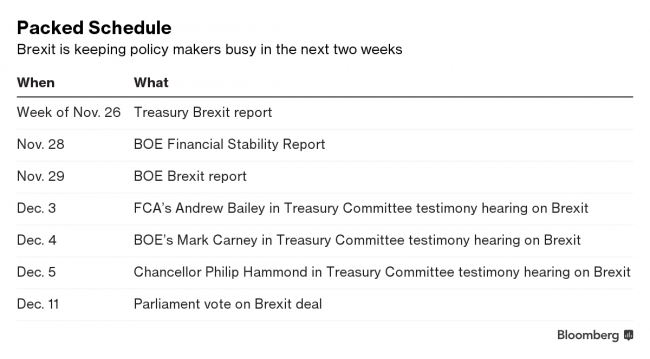Street Calls of the Week
(Bloomberg) -- The Brexit deal negotiated by Prime Minister Theresa May will lower economic output over the coming decade compared with staying in the European Union, researchers said.
The deal would lower gross domestic product per capita by between 1.9 percent and 5.5 percent versusEU membership, said a team led by economist Jonathan Portes. Leaving without a deal could lower output per head as much as 8.7 percent.
Savings on the U.K.’s contributions to the EU budget would make up only a fraction of the potential damage to the economy, according to the joint paper by the Centre for Economic Performance and academic think tank The UK in a Changing Europe. The deal will also reduce the money available for public services.
Trade barriers and reductions in the immigrant labor force “would leave the U.K. significantly smaller than it would otherwise have been over the medium to long term,” Portes said. “That in turn would mean higher taxes or public spending.”
The researchers say they have to keep the estimated range of the output loss wide due to “the very substantial uncertainties involved.”
Britain’s public finances would be between 0.4 percent and 1.8 percent of GDP worse off under May’s deal, or 1 percent and 3.1 percent lower in a no-deal scenario, according to the study.
Lawmakers will have the luxury of perusing more numbers like these before they finally cast the deciding vote in Parliament. The Bank of England, Treasury, and research houses are all making last-minute efforts to provide quantifiable evidence to show Brexit’s economic impact before the vote, which has been set forDec. 11.
Brexit will reduce the U.K. economy by 100 billion pounds ($130 billion) a year through 2030, a separate report by the National Institute of Economic and Social Research warned on Monday. That’s equivalent to the annual output of Wales or the financial services industry in London.
